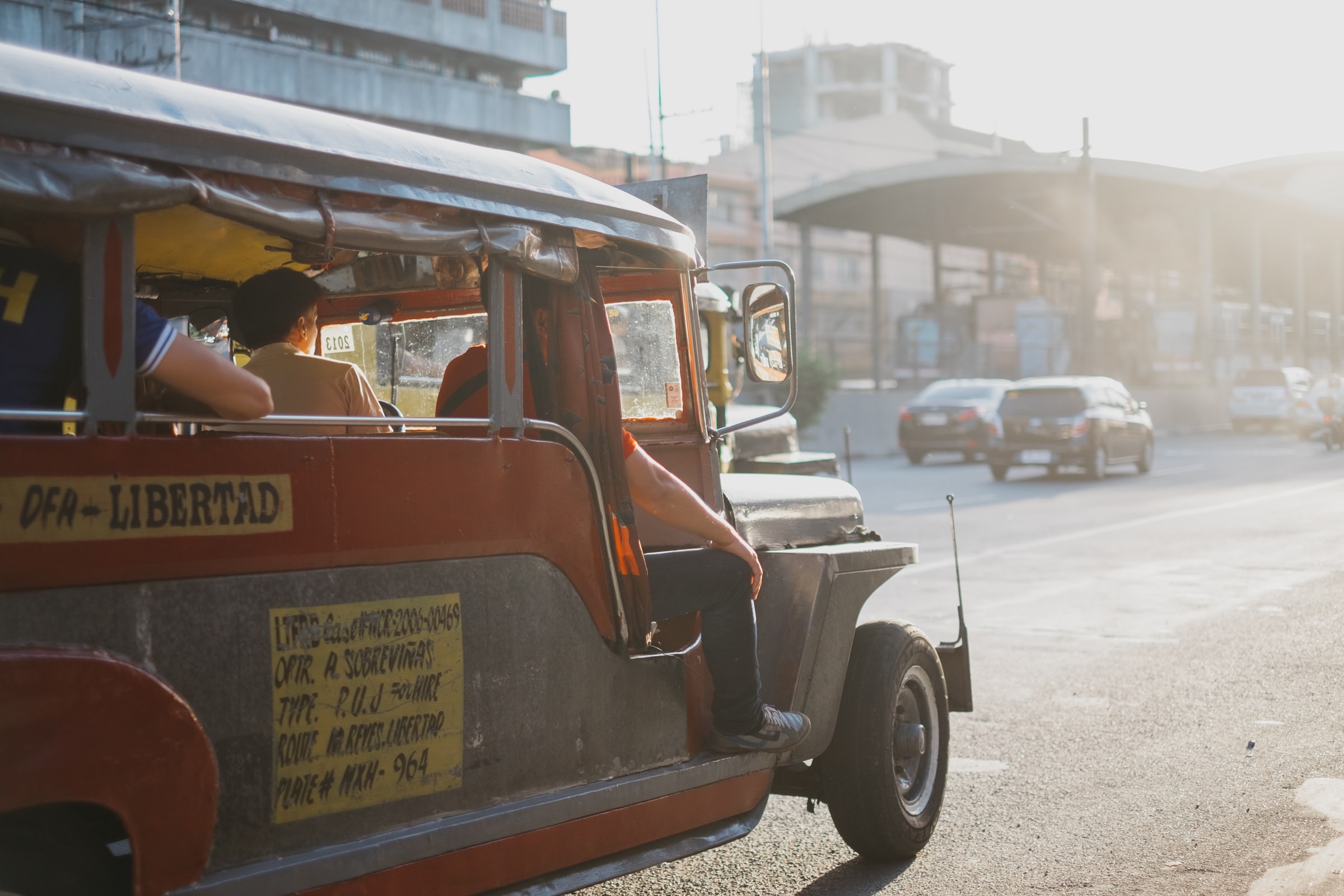News
DOTr sets guidelines for public transport in GCQ areas

In an online briefing on Thursday, DOTr Undersecretary Artemio Tuazon, Jr. said that the guidelines, pending the signing of President Rodrigo Duterte, will allow the gradual reopening of public transportation in GCQ areas, while areas under an enhanced community quarantine (ECQ) will still be denied the operation of public transport. (File photo: Yannes Kiefer/Unsplash)
MANILA – As part of the reduced rules in areas under a general community quarantine (GCQ) starting Friday, the Department of Transportation (DOTr) laid out its guidelines for public transportation in areas deemed at low risk for transmission of the coronavirus disease 2019 (Covid-19).
In an online briefing on Thursday, DOTr Undersecretary Artemio Tuazon, Jr. said that the guidelines, pending the signing of President Rodrigo Duterte, will allow the gradual reopening of public transportation in GCQ areas, while areas under an enhanced community quarantine (ECQ) will still be denied the operation of public transport.
Formulated by the Inter-Agency Task Force on Emerging Infectious Diseases (IATF-EID) and integrated into its omnibus guidelines, Tuazon said the new rules require a special permit for public utility vehicles (PUV) before its operation and the reduction of passenger capacity for buses, jeeps, and UV Express to 50 percent—in adherence to a 1-meter physical distancing rule.
“Yung mga lumang jeep, magkakaharap at dikit dikit ang mga pasahero, hindi papayagan. Ang uunahin na payagan ay mga modernized jeepneys (Old jeepneys, where passengers are sitting astride and close together, will not be allowed. The first ones to be allowed will be modern jeepneys),” Tuazon said.
For taxis and transport network vehicle services (TNVS), he said they will be allowed to carry a maximum of two passengers, for tricycles a maximum of one passenger, while motorcycle taxis are still banned as these do not comply with social distancing guidelines.
Tuazon said all drivers are required to wear facemasks and should be protected further by a plastic or acetate wall to separate him or her from passengers, while all passengers are also required to wear facemasks or be denied entry to PUVs.
To allow for minimum contact, he said automatic fare collection will be encouraged and if not available, passengers will be required to pay the driver first before boarding the vehicle.
Aside from denying entry to those not wearing facemasks, he said those who exhibit signs of low-grade fever or worse will also not be allowed to board PUVs.
To reduce the possibility of transmission of the disease, footbaths will be required in passenger loading areas while a one-meter physical distancing rule will be enforced for passengers waiting in line.
DOTr Assistant Secretary Mark De Leon said PUVs will be required to undergo disinfection after every round-trip, while the installation of disinfection facilities will be required in all transport terminals, including hand-washing stations and provision of sanitizers.
Martin Delgra III, chair of Land Transportation Franchising and Regulatory Board (LTFRB), said drivers and operators of PUVs may secure their special permits starting Friday by applying online or visiting the LTFRB central office or any regional offices.
He added that while the special permit will be free-of-charge, only a limited number of PUVs will be allowed to operate and must be approved as roadworthy by the Land Transportation Office (LTO).
Tuazon said the DOTr and its line agencies will partner with the Philippine National Police for proper enforcement of the guidelines.
‘Stimulant package’
To help ease the burden on PUVs operating at a reduced capacity, DOTr Secretary Arthur Tugade said the DOTr was currently formulating an incentive package for PUV drivers and operators.
“The stimulant package may be composed of several things.
Tinitignan naming ang tulong o ayuda sa fuel. Siguro 30 percent of daily consumption (We’re looking at providing support on fuel costs. Maybe 30 percent of daily consumption),” Tugade said.
He added that the support package may also include loan agreements with favorable terms as well as extension of existing loans for up to three months with no interest.
Delgra said there were no plans to increase the fare on public transportation as it would only add to the burden of the average commuter.
Earlier, the IATF-EID announced that Metro Manila, Central Luzon (except for Aurora), Calabarzon, Pangasinan, Benguet, Iloilo, Cebu, Bacolod City, and Davao City will still be under ECQ beginning May 1, while those not included will be under GCQ.
It said that quarantine rules in GCQ areas will be relaxed, reopening of several non-essential businesses will be allowed, among other measures meant to ease the economic impact of the pandemic in the country.





















